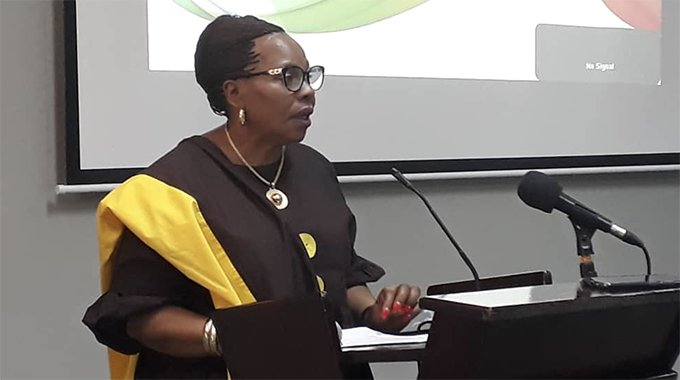Manicaland Bureau
FARMERS involved in the 2020 winter wheat programme must take advantage of Government support and meet food and nutritional requirements, fill strategic grain reserves and export, Vice President Constantino Chiwenga said yesterday.
VP Chiwenga made the call at Mubvakacha Farm (Headlands), belonging to Dr James Chipunza where he was launching the Manicaland programme.
He was accompanied by Lands, Agriculture, Water and Rural Resettlement Minister Perrance Shiri, Minister of State for Provincial Affairs and Devolution Dr Ellen Gwaradzimba, Zanu PF Manicaland chairman and Home Affairs Deputy Minister Cde Mike Madiro, senior Government and Zanu PF officials.
The Vice President toured 43 hectares of a thriving wheat crop and persuaded Dr Chipunza to plant an additional 17ha since his water source can irrigate up to 60 hectares.
He said Government was supporting production of 80 000ha of wheat in a strategic move to cut imports. Zimbabwe needs at least 400 000 tonnes of wheat a year.
“We will continue to assess the progress made in all provinces in the implementation of the 2020 winter wheat programme. In the same vein, we are also encouraging farmers around the country to participate in the traditional grains programme. These two programmes were conceived with a view to enhancing food security and nutrition at both household and national levels.
“Targets of wheat hectarage were set for each province and Manicaland was given 7 000ha with an expected output of 36 400 tonnes during this current season and I am happy that you have exceeded the set target by 500ha, and what is required now is to supervise the programme so that it goes according to plan,” he said.
VP Chiwenga said demand for land continues to increase and underutilised farms will be repossessed.
“The objective of the land reform programme was to empower the people of Zimbabwe. However, it is not an end in itself. I implore all farmers to utilise the land allocated to them. Let us consolidate Government’s land reform programme by increasing productivity on our farms. The journey to productivity is not an easy one. It requires commitment and a paradigm shift in the way we view farming. Farming is a business, which should contribute massively to the Gross Domestic Product of the country,” said VP Chiwenga.
VP Chiwenga said the country had not been spared of the devastating impact of climate change, hence the need to build resilience and capacity to achieve food security and nutrition.
“This can be achieved through the adoption of new technology as well as research and development, not only in mechanisation, but also in seed varieties that can withstand dry spells. In light of this, it is imperative that we take advantage of the existing water bodies within the country and optimally utilise them.
“This is in line with Government policy and the Agriculture Recovery Plan’s thrust of harnessing and utilising all irrigable land around existing water bodies to create green islands.
“Key service providers such as ZESA and ZINWA are called upon to augment Government efforts by ensuring uninterrupted supplies of electricity and water, respectively. As we focus into the future, our target should not only be to achieve national food self-sufficiency, but rather the long term prospect of exporting and earning the much-needed foreign currency,” said VP Chiwenga.
– HERALD


